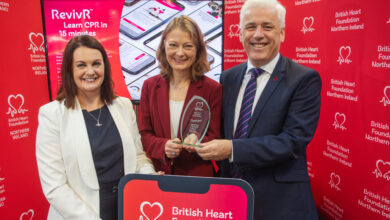Inequalities in health

agendaNi analyses the varying level of health quality across Northern Ireland.
Recently, the Department of Health, Social Services and Public Safety published an interim update on the Northern Ireland Health and Social Care Inequalities Monitoring System’s regional reports. The 2015 update provides a summary of the latest position and inequality gaps between the most deprived areas, the least deprived areas and the Northern Ireland average.
The key facts provided highlight the disparity between the most deprived areas and least deprived areas in areas such as life expectancy, general health, mental health, mortality and obesity.
The document highlights that whilst life expectancy has increased for both males and females over the past five years, the deprivation gaps have remained similar. On average a Northern Irish male can expect to live to 78-years-old while a woman can expect to live for over 82 years. However, in the most deprived areas, male life expectancy was 7.5 years lower than in the least deprived areas while female life expectancy was 4.3 years lower in the most deprived areas.
Perhaps unsurprisingly, the proportion of people who described their health as good or very good was considerably lower on both sides of the gender divide the more deprived the person is. For males, there was a 16 per cent gap between the least deprived and most deprived while for females, this gap stood at 22 per cent. There was a similar story to tell with smoking prevalence and smoking deaths. In 2014/15 one in ten people in the least deprived areas are smokers to over one third of people in the most deprived areas. Avoidable mortality fell from 294 deaths per 100,000 population in 2005-09 to 259 deaths per 100,000 population in 2009-13, with rates in the most deprived areas, 125 per cent higher than in the least deprived areas.
Access to healthcare may also prove to be more of a problem for those in the most deprived areas as a recent report by the Northern Ireland Audit Office found that Northern Ireland’s health service is facing unprecedented financial challenges. These financial pressures mean many trusts are finding it difficult to meet waiting time targets. However, patients prepared to pay to access private care facilities can often be treated at the same facilities with a substantially reduced waiting time for treatment.
In Northern Ireland healthcare services can be accessed by eligible individuals free of charge. However HSC premises can also be used to treat private, paying patients. In simple terms when patients are prepared to opt for private treatment on HSC premises they are required to pay for the use of the HSC facilities and are separately billed by the consultant, something that not everyone is able to afford.





